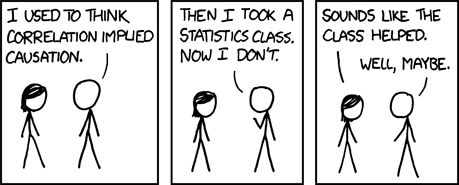My neighbor likes to ask big questions about big ideas. He’s not pretentious and doesn’t pontificate, so I think he just likes big questions. Anyway, the other day he asked what the necessary components of an ideal public education were. “Writing,” I said, naturally. He agreed partly because, he said, good writing involves good thinking. That’s certainly true, at least of good nonfiction writing. I’m less interested in big questions, though, and I didn’t take it any further – into, for instance, whatever “good thinking” might be.
Then at the coffee shop: Grace and Larry were arguing about the violence in Ferguson, Missouri. Larry said what you always hear, that the conflict between the police and the community was because the police force was white and the community was black. Grace said, “those two facts are not necessarily related,” and pointed out that Baltimore (where we all were) had its Freddy Grey violence but the police force and community, not to mention the city council, are pretty much the same mix of black and white. This is not quite true: Baltimore is 28 percent white; its police force is 45 percent white. But Grace’s point was that Larry wasn’t being logical, that he was committing a logical fallacy.
That is, he assumed that the tension between police and community is determined by the racial mix of each, and that Ferguson’s police force and community had different racial mixes, and so Ferguson had tension. The logical fallacies are all named, oh joy! I think, but am not sure, that this is the logical fallacy of begging the question, petitio principii: “a conclusion is derived from premises that presuppose the conclusion, ” or you try to prove a thing by assuming it’s true.
Continue reading →




 Gosh darn it, right now I have so many big questions about what’s happening in the world, and there seem to be so few good answers that it makes me want to shut down and hide under the bed. Not to sound negative. But I think you’re right there with me, yes?
Gosh darn it, right now I have so many big questions about what’s happening in the world, and there seem to be so few good answers that it makes me want to shut down and hide under the bed. Not to sound negative. But I think you’re right there with me, yes?


